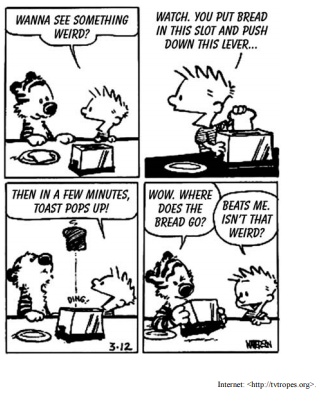
Based on the cartoon and the vocabulary and language used in it, judge the item below.
The boy does not understand that a toast is a slice of bread that is exposed to heat from a grill or fire.
According to text 5A7-I, judge the following item.
According to text 5A7-I, judge the following item.
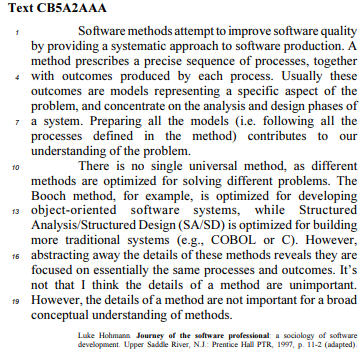
Judge the following items considering the ideas of text CB5A2AAA and the vocabulary used in it.
Outcomes are broad representations of problems existing outside a system.
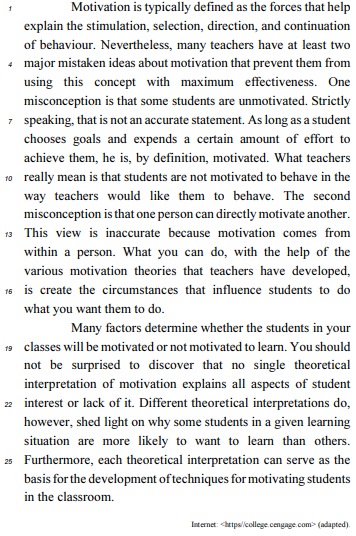
Judge the following item according to the ideas of the previous text and its linguistic aspects.
According to the text, the source of motivation is found inside a person.

Judge the following item according to the ideas of the previous text and its linguistic aspects.
The fragment “prevent them from using" (R. 4 and 5) can be correctly replaced with prevent them to use.
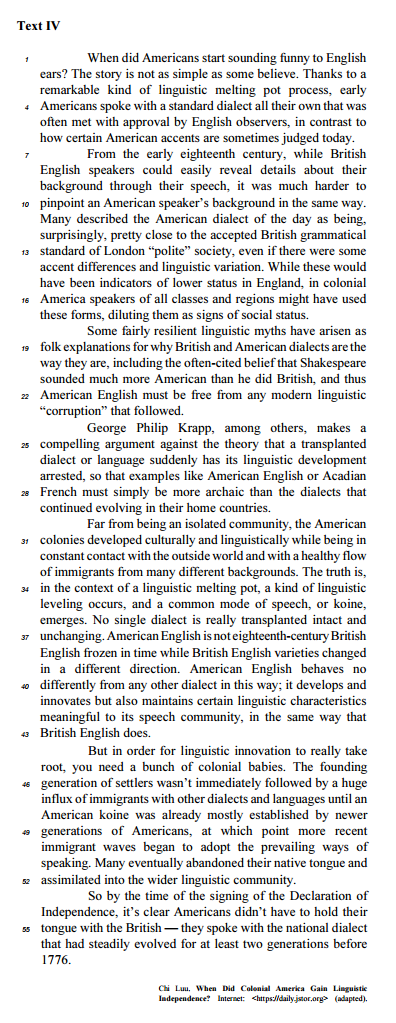
In text IV, without altering the general meaning of the sentence, "pinpoint" (l.10) could be replaced by (mark right — C — or wrong — E)
determine.
Considering the grammatical and semantic aspects of text V, decide whether the following items are right (C) or wrong (E).
The word “contingent" (l.34) is synonymous with necessary.
Considering the ideas and the vocabulary of text II, decide whether the statements below are right (C) or wrong (E).
After all stages of the Civil and Diplomatic Service entrance exams, the number of candidates admitted was around 20.
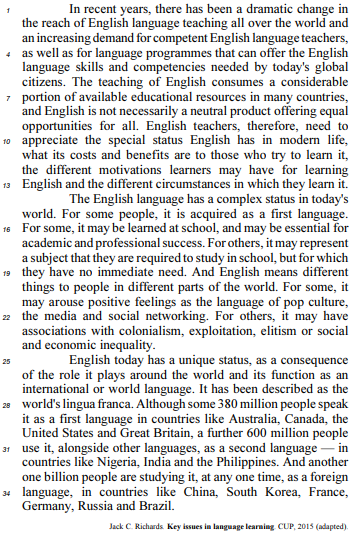
Based on the ideas and linguistic aspects of the text above, judge the item below.
The word “economic", in “economic inequality" (R.24), could be replaced by economical, without changing the meaning of the text.

In text IV, without altering the general meaning of the sentence, "pinpoint" (l.10) could be replaced by (mark right — C — or wrong — E)
compare.

Based on the cartoon and the vocabulary and language used in it, judge the item below.
In the last balloon, “weird" is synonymous with strange, bizarre.

In text IV, without altering the general meaning of the sentence, "pinpoint" (l.10) could be replaced by (mark right — C — or wrong — E)
convey
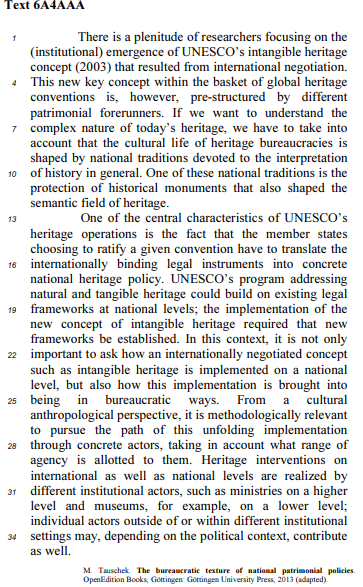
Judge the following item, concerning the vocabulary used in text 6A4AAA.
The expression “resulted from" (ℓ.3) could be replaced by arose out of, without changing the meaning of the text.
In the text 5A5AAA,
“en route" (R.24) can be replaced by on the way without any
change in the meaning of the sentence.